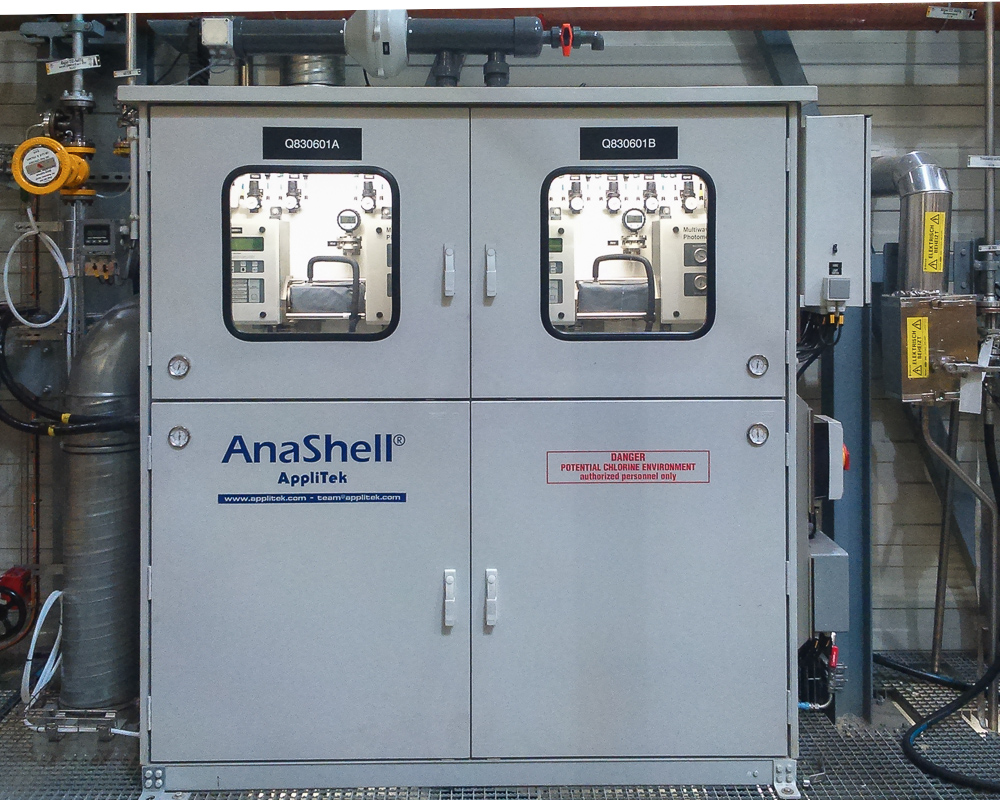
Fast Determination of Hydrogen in Dry Chlorine
Fast determination of hydrogen in dry chlorine provides an early warning system against elevated levels of hydrogen, thereby protecting the chlorine production plant against hydrogen explosion incidents.
AppliTek’s analyzer system for fast determination of hydrogen in dry chlorine can be considered as Best Available Technology (BAT). However, it can never replace a system for determination of hydrogen in wet chlorine since it meets other needs in process control than those for wet chlorine. Even a tiny amount of hydrogen in the hot-wet chlorine header can lead to a dangerously high concentration after liquefaction.
Background
The chlorine drying process causes the relative hydrogen concentration in the chlorine to increase. During the chlorine liquefaction hydrogen levels are also increasing, resulting in a mixture of H2 and Cl2 gas that can be flammable or explosive. For safety reasons it is highly recommended to install an on-line analyzer system for the fast determination of hydrogen in in order to keep the gas mixture within flammability limits as well as to have additional control on pressure, temperature and dilution.
Other application fields
Safety critical monitoring systems, especially for hydrogen, are also used for: hydrogen in hot wet chlorine (electrolyis), hydrochloric acid synthesis
Field proven technology (up-time > 99.5%)
Fast response (T90 = 30 seconds)
No influence of changes in matrix
Selective measurement
Excellent results during early start-up of cell room
HAZOP approved by Sabic Innovative Plastics (formerly GE), Solvay, Sadaf, Westlake, Olin, Ineos
Typical ranges
On analyzer display 0 – 10 vol% HCl
~ 0 – 5% H2 by high temp. reactor (Cl2 + H2 2HCl)
On analyzer display 0 – 4 vol% HCl
~ 0 – 2% H2 by high temp. reactor (Cl2 + H2 2HCl)
Analysis method
Multi-wavelength infrared
Detection limit
N.A.
Response time
20 seconds
(T90, without ModuPlex® stream selection)
Precision
Better than ± 2 % full scale range





